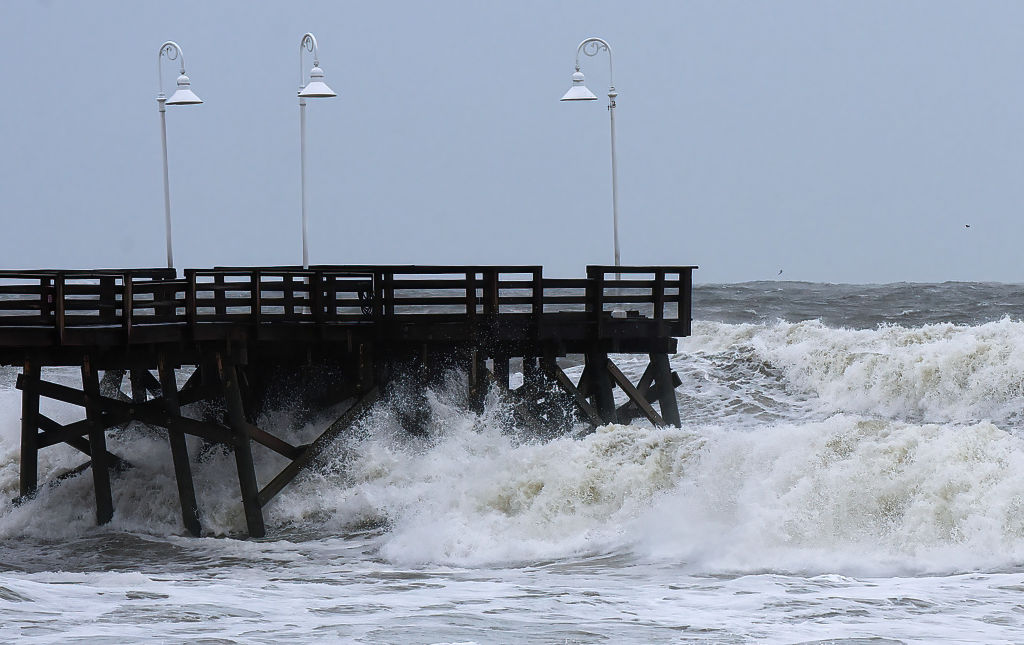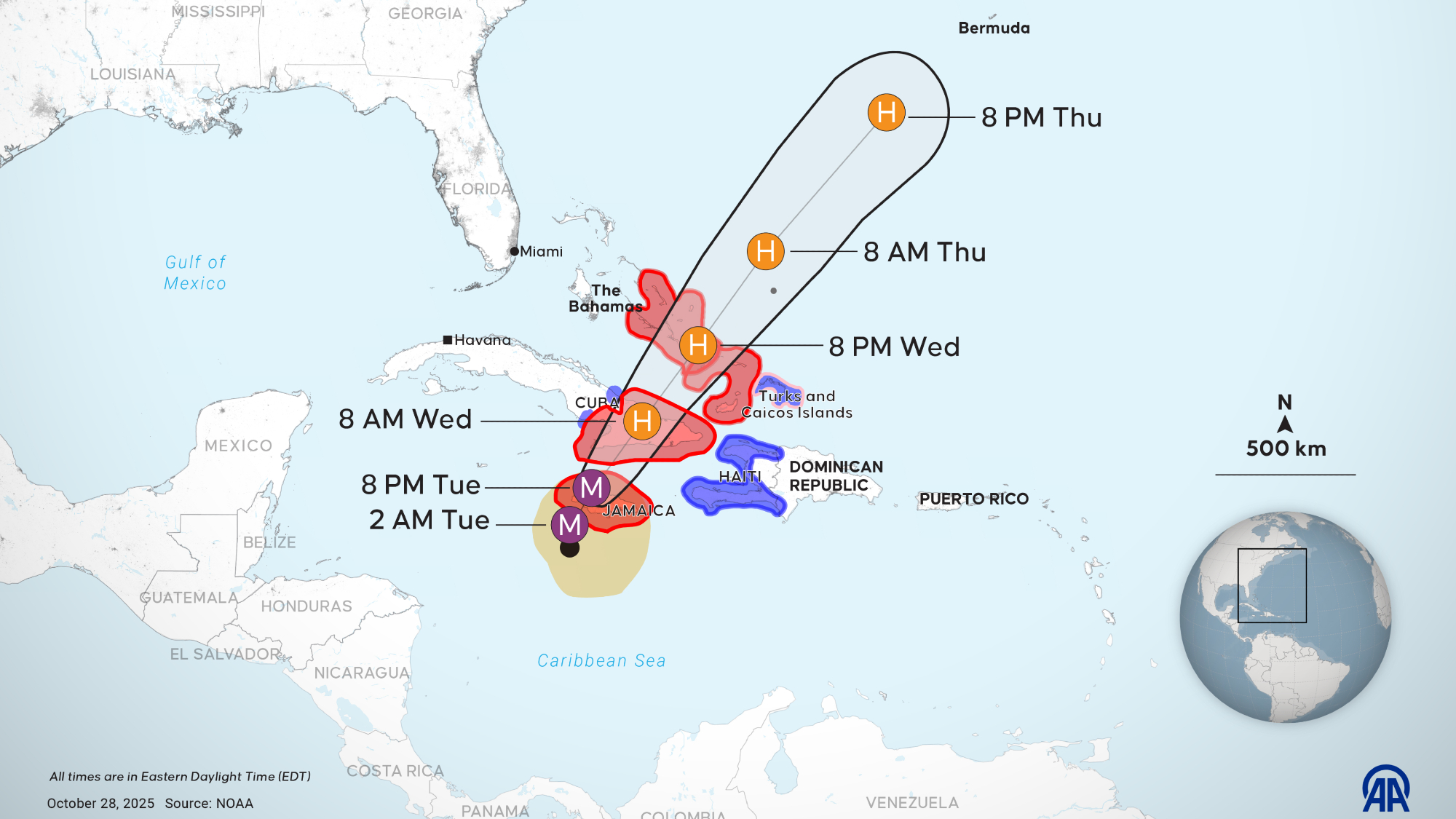Natural disasters displaced more than 3 million Americans in 2022, U.S. Census says


A free daily email with the biggest news stories of the day – and the best features from TheWeek.com
You are now subscribed
Your newsletter sign-up was successful
An estimated 3.4 million Americans were displaced from their homes due to natural disasters in 2022, according to data from the U.S. Census Bureau.
The data, which was collected this past January, provides a snapshot into the role that climate change can play in altering American communities. The Census Bureau concluded that the majority of those displaced were forced out due to hurricanes, while floods, fires, and tornadoes were other major environmental factors.
While up to 40 percent of displaced Americans were able to return home within a week, the Census reported, at least 16 percent haven't been able to do so. An additional 12 percent of people were displaced for more than six months, according to the Census.
The Week
Escape your echo chamber. Get the facts behind the news, plus analysis from multiple perspectives.

Sign up for The Week's Free Newsletters
From our morning news briefing to a weekly Good News Newsletter, get the best of The Week delivered directly to your inbox.
From our morning news briefing to a weekly Good News Newsletter, get the best of The Week delivered directly to your inbox.
The data, which the Census notes is "experimental," was collected based on 68,504 responses to the Census' Household Pulse Survey, and is one of a limited number of federal resources aimed at tracking displaced Americans.
Michael Gerrard, director of the Sabin Center for Climate Change Law at Columbia University, told NBC News that the Census' numbers "are very distressing."
"These numbers are what one would expect to find in a developing country. It's appalling to see them in the United States," Gerrard said, adding that displacements are "only going to get worse in the years to come because climate change is making extreme weather events more frequent and more severe."
The Census concluded that up to 1.4 percent of all U.S. adults may have been displaced in 2022, a number that NBC noted is higher than most other estimates such as the Internal Displacement Monitoring Center.
A free daily email with the biggest news stories of the day – and the best features from TheWeek.com
The state that got hit the worst, according to the Census, was Florida, where an estimated 888,895 people were uprooted from their homes due to hurricanes.
Justin Klawans has worked as a staff writer at The Week since 2022. He began his career covering local news before joining Newsweek as a breaking news reporter, where he wrote about politics, national and global affairs, business, crime, sports, film, television and other news. Justin has also freelanced for outlets including Collider and United Press International.
-
 Quentin Deranque: a student’s death energizes the French far right
Quentin Deranque: a student’s death energizes the French far rightIN THE SPOTLIGHT Reactions to the violent killing of an ultra-conservative activist offer a glimpse at the culture wars roiling France ahead of next year’s elections.
-
 Secured vs. unsecured loans: how do they differ and which is better?
Secured vs. unsecured loans: how do they differ and which is better?the explainer They are distinguished by the level of risk and the inclusion of collateral
-
 ‘States that set ambitious climate targets are already feeling the tension’
‘States that set ambitious climate targets are already feeling the tension’Instant Opinion Opinion, comment and editorials of the day
-
 At least 8 dead in California’s deadliest avalanche
At least 8 dead in California’s deadliest avalancheSpeed Read The avalanche near Lake Tahoe was the deadliest in modern California history and the worst in the US since 1981
-
 Death toll from Southeast Asia storms tops 1,000
Death toll from Southeast Asia storms tops 1,000speed read Catastrophic floods and landslides have struck Sri Lanka, Indonesia, Thailand and Malaysia
-
 Hurricane Melissa slams Jamaica as Category 5 storm
Hurricane Melissa slams Jamaica as Category 5 stormSpeed Read The year’s most powerful storm is also expected to be the strongest ever recorded in Jamaica
-
 Icarus programme – the ‘internet of animals’
Icarus programme – the ‘internet of animals’The Explainer Researchers aim to monitor 100,000 animals worldwide with GPS trackers, using data to understand climate change and help predict disasters and pandemics
-
 Renewables top coal as Trump seeks reversal
Renewables top coal as Trump seeks reversalSpeed Read For the first time, renewable energy sources generated more power than coal, said a new report
-
 China vows first emissions cut, sidelining US
China vows first emissions cut, sidelining USSpeed Read The US, the world’s No. 2 emitter, did not attend the New York summit
-
 At least 800 dead in Afghanistan earthquake
At least 800 dead in Afghanistan earthquakespeed read A magnitude 6.0 earthquake hit a mountainous region of eastern Afghanistan
-
 Cloudbursts: what are the 'rain bombs' hitting India and Pakistan?
Cloudbursts: what are the 'rain bombs' hitting India and Pakistan?The Explainer The sudden and intense weather event is almost impossible to forecast and often leads to deadly flash-flooding and landslides
